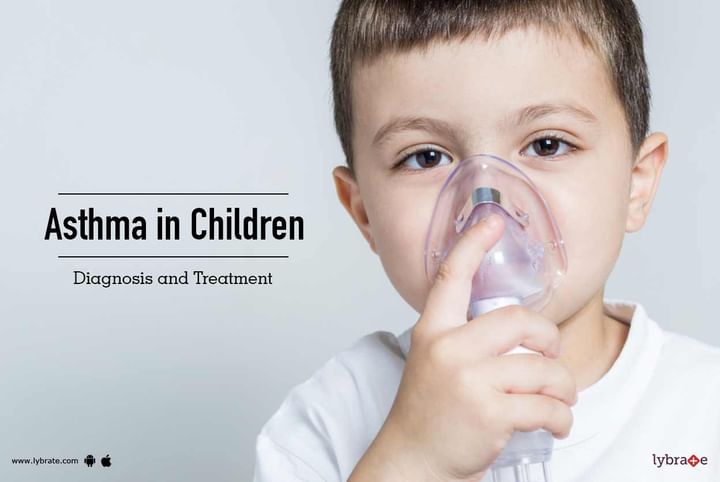Asthma in Children: Diagnosis and Treatment
Has your child been coughing frequently? Is the cough chronic in nature, making your child breathe rapidly and does he/she complain about a tightened chest? These symptoms signify that your child is having asthma. Asthma is a medical condition characterized by paroxysmal wheezing respiration dyspnoea. It is common in children and an affected child experiences difficulty in breathing, and a whizzing sound is produced, especially during expiration. Asthma may lead to severe health complications and needs immediate diagnosis and treatment.
Diagnosis: The diagnosis of asthma is based on the symptoms, medical history and a physical examination of the child.
The different modes of asthma diagnosis are as follows:
- Medical history and symptoms: You must tell the doctor about any history of breathing trouble with your child or whether there are chances of other inherited health conditions. You must explain your child's symptoms properly, which may include coughing, wheezing, chest pain or tightness and others if observed.
- Physical examination: A physical exam will be carried out in your child where the doctor will listen to his heart and lungs, and look for eye or nose allergies.
- Medical tests: A chest X-ray of the child has to be carried out, along with a simple lung function test known as spirometry. This test measures the amount of air present in the lungs and determines how fast it can be exhaled. Spirometry enables a doctor to determine the severity of the asthma. Some other tests are also carried out for the identification of asthma triggers. They include allergy skin testing, blood tests and X-rays to know if sinus infections are affecting the asthma. An asthma test determines the amount of nitric oxide in your child's breath.
Treatment: Based on your child's severity of asthma symptoms and his medical history, the doctor will provide you with an action plan to treat the same. This action plan explains all the medications your child requires, the dosage and schedule of the medicines. The plan also includes points on what to do when the asthma worsens and when an emergency treatment is required. Anti-inflammatory drugs are prescribed to children who require bronchodilator medication. All asthma medicines used by adults can be used in case of children but in lower dosages.
You should give the asthma medications to your child using a home nebulizer or a breathing machine. A nebulizer delivers asthma drugs by transforming them from liquid to a mist. The child gets the drug by breathing it via a face mask.
In order to control and manage asthma in children, they must avoid the triggers and should keep away from any source of smoke. A doctor must be consulted to know about the best diagnosis and treatment methods.



+1.svg)
